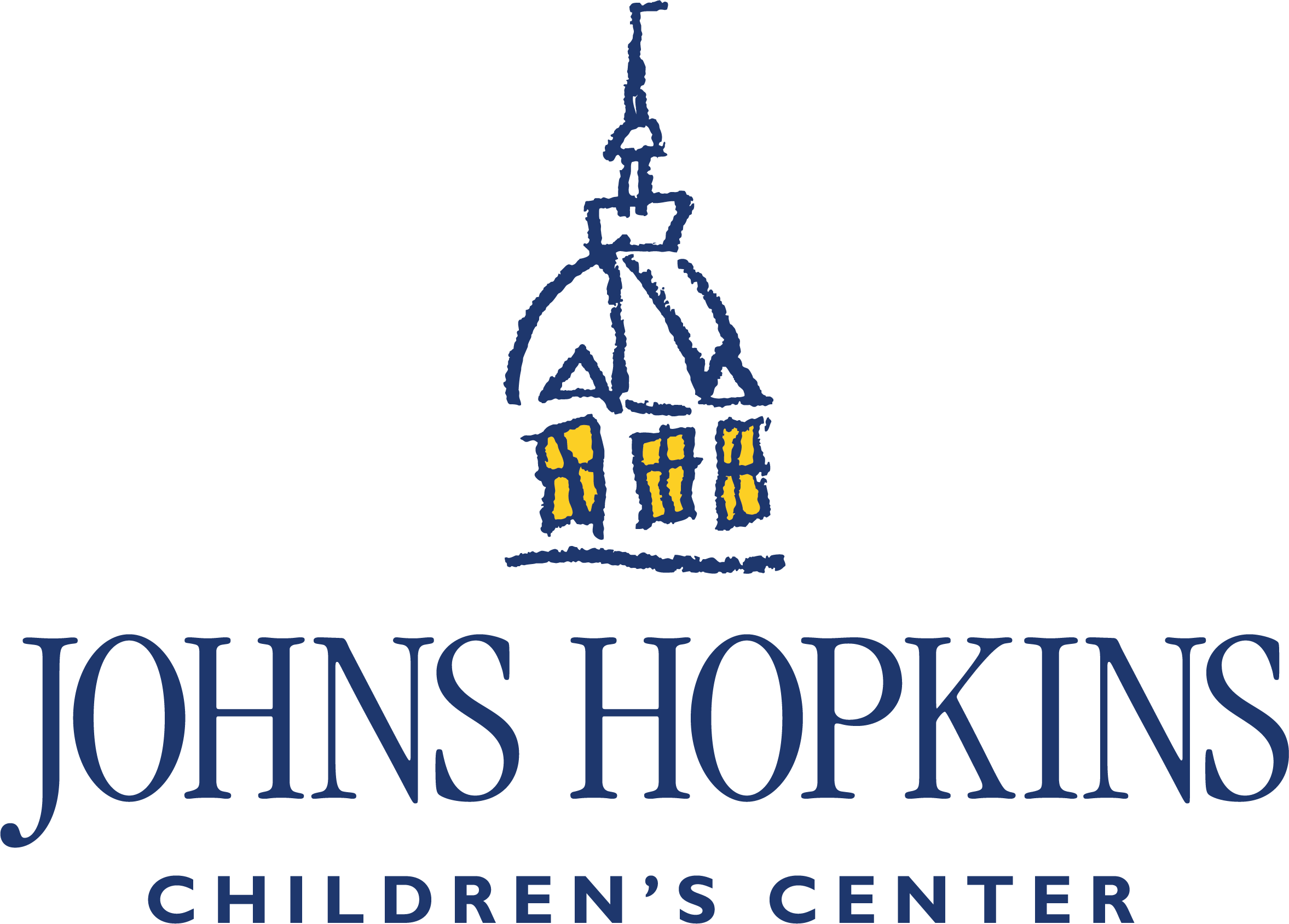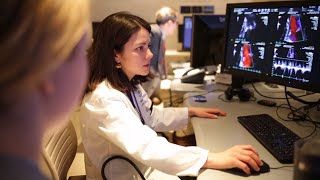Pediatric Cardiology Fellowships
Three-Year Training Program In Academic, Research and Clinical Practice
The Children’s Cardiac Clinic and the division of Pediatric Cardiology were founded in 1931, and Dr. Helen Brooke Taussig was the first director. The clinic was the first of its kind and became the center for teaching and training over the years. Johns Hopkins has remained in the forefront of pediatric cardiology in clinical care, development of new diagnostic and therapeutic techniques and research.
The objective of the program is to train candidates for careers in academic pediatric cardiology. A minimum training period of three years is required for the Subboard of Pediatric Cardiology. Additional training is available for those undertaking a supported research program. The basic plan is: a mainly clinically oriented first year, with a survey of possible research area; a second year split between clinical work with more responsibility and the beginning of a chosen research project; and a third year with the major emphasis on research but with continuing clinical responsibilities. Alternative plans may be available for applicants wishing to spend additional time in a research program. The applicants must be in an accredited pediatric residency program. Applicants may begin applying for the cardiology fellowship in their second year of residency. The pediatric cardiology program participates in the National Residency Matching Program (spring cycle of the match). Applicants are eligible for the program if they have preliminary training that will qualify them to become board certified in pediatrics and ultimately pediatric cardiology by the American Board of Pediatrics. Applications must be submitted to the Electronic Residency Application Service and must be complete by December 31 of the year preceding the start of fellowship.
The division of Pediatric Cardiology is part of the Johns Hopkins Children’s Center, a 200-plus bed pediatric facility, which is in turn part of the 1,000-bed Johns Hopkins Hospital. The division of pediatric cardiology operates in collaboration with the Johns Hopkins Heart Center and the divisions of adult cardiology, cardiovascular radiology, cardiovascular surgery, cardiovascular anesthesiology, as well as neonatal and pediatric intensive care. The clinical patient areas, the echocardiography lab and the basic research laboratories are in close proximity to those facilities of other divisions to promote mutual interchange and enrichment.
Dr. William RavekesFellowship Program Director
[email protected]
Barbara Carson
Sr. Fellowship Program Coordinator
[email protected]
Innovation and Teaching | Pediatric and Congenital Heart Center
Considered the birthplace of pediatric cardiology, the Blalock-Taussig-Thomas Pediatric and Congenital Heart Center at Johns Hopkins Children’s Center continues its innovative mission through teaching, mentoring and advancing the next generation of pediatric cardiologists. Shelby Kutty, M.D., Ph.D., co-director of the Heart Center, talks about the history and future of the Division of Pediatric Cardiology and the emphasis placed on educating the next generation of cardiologists.
Learn More About the Pediatric Cardiology Fellowship
Diversity, Inclusion and Health Equity
The Department of Pediatrics at Johns Hopkins School of Medicine and Pediatric Cardiology fellowship training program are committed to cultivating and sustaining an environment that fosters the development of diverse physician leaders who are committed to eliminating the nation’s health inequities through patient care, education, advocacy, and research. Diversity, equity, and inclusion are core values of our fellowship program, department and school of medicine.
Through pathway programming, such as the Johns Hopkins Visiting Resident Elective Program to Promote Diversity, Equity, and Inclusion in Pediatric Subspecialties we aim to build a community that reflects the broad array of human differences found in our society at large.


